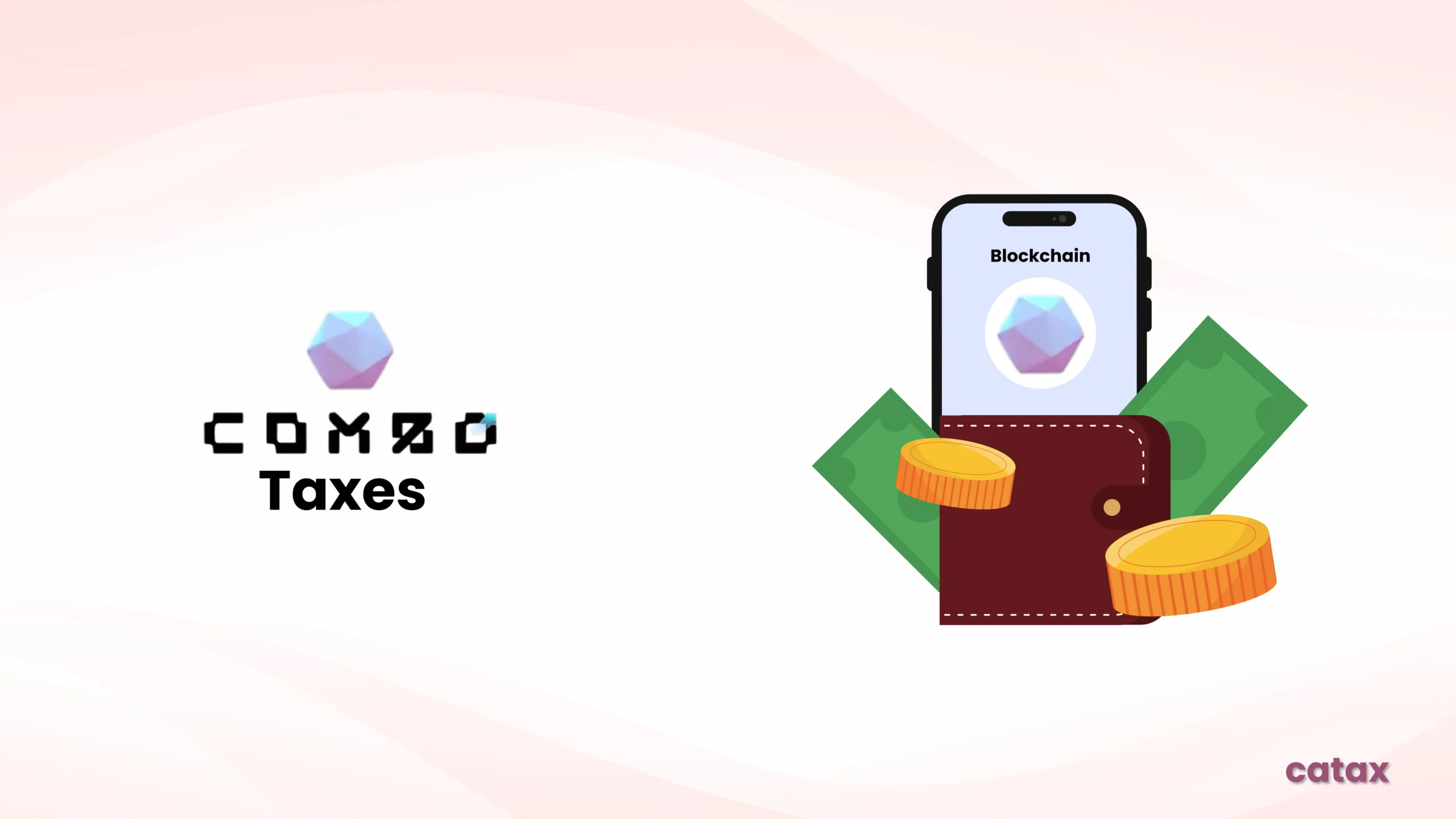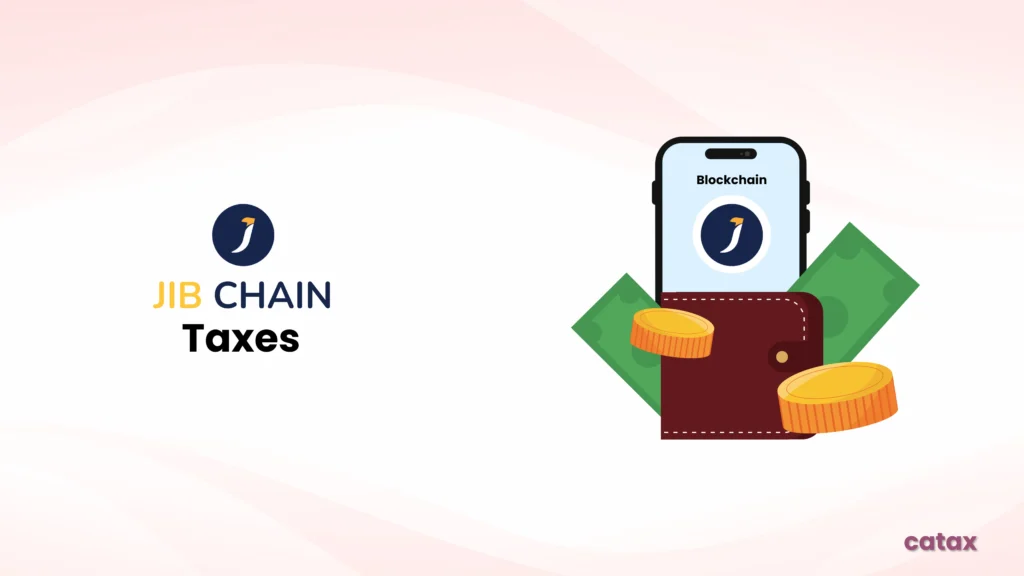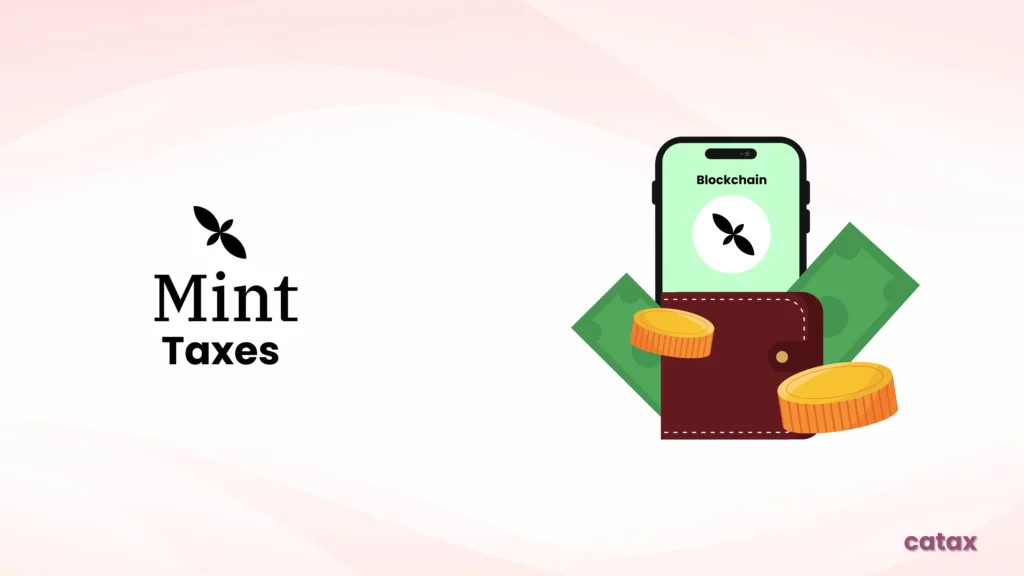Cryptocurrency tax rules vary by country, and Combo (COMBO) taxes transactions may be taxed differently depending on local regulations. Whether you buy, sell, trade, or stake COMBO, understanding how tax authorities classify these activities helps you stay compliant and avoid penalties.
This guide breaks down Combo tax rules so you can manage your crypto taxes confidently and stay aligned with legal requirements.

- How to Connect Your Combo Wallet to Catax?
- Are Combo (COMBO) Transactions Taxable?
- Can You Deduct Trading Fees and Other Costs?
- How Is Combo (COMBO) Taxed Based on Holding Period?
- How Is Staking Income Taxed?
- How Countries Tax Staking Rewards?
- Can You Claim Combo (COMBO) Losses for Tax Benefits?
- How to Stay Compliant with Combo (COMBO) Tax Rules?
How to Connect Your Combo Wallet to Catax?
To easily track your Combo (COMBO) transactions and calculate taxes, follow these steps to connect your wallet to Catax:
- Open your Combo wallet or use a supported block explorer (such as MetaMask, Ledger, or any compatible Combo wallet).
- Copy your public wallet address from your Combo wallet.
On Catax:
- Log in to your Catax account and select your country.
- Choose Chain, then search for Combo Wallet.
- Paste your public wallet address and click Connect.
Once connected, Catax will automatically import your COMBO transactions and help you streamline your crypto tax reporting.
Calculate My Taxes ➤Are Combo (COMBO) Transactions Taxable?
Yes, in most countries, Combo (COMBO) transactions are considered taxable. Depending on how you use COMBO, tax authorities may classify it as a capital asset, property, or income.
When Do You Have to Pay Taxes on Combo (COMBO)?
You may need to pay taxes in the following situations:
- Selling COMBO for a profit – If you sell COMBO at a higher price than you paid, the profit is generally taxed as a capital gain.
- Trading COMBO for another cryptocurrency – Swapping COMBO for tokens like Bitcoin or Ethereum is often treated as a taxable event.
- Using COMBO for purchases – If you use COMBO to buy goods or services, and its value has increased since you acquired it, you may owe capital gains tax.
- Earning COMBO through staking or rewards – In many jurisdictions, staking or reward earnings in COMBO are taxed as income when received.
- Receiving COMBO as payment – If you’re compensated in COMBO, the amount is typically taxed as income, based on its market value at the time of receipt.
Tax classification depends on your country’s laws, so review local crypto tax guidelines carefully.
Can You Deduct Trading Fees and Other Costs?
Whether you can deduct expenses related to your COMBO transactions depends on your jurisdiction. Some countries allow deductions for:
- Trading fees when buying or selling COMBO
- Network fees when transferring COMBO between wallets
In contrast, some tax systems only allow you to deduct the cost basis (original purchase price) without additional expenses.
Always consult a tax advisor or your country’s tax authority to confirm eligible deductions.
How Is Combo (COMBO) Taxed Based on Holding Period?
Tax rates may vary depending on how long you’ve held your COMBO:
- Short-term holdings (under one year) – Often taxed at regular income tax rates.
- Long-term holdings (over one year) – In some jurisdictions, long-term gains are taxed at a lower rate.
- Flat-rate systems – Certain countries apply a fixed tax rate on crypto gains, regardless of holding duration.
By understanding how your country taxes COMBO, you can plan more effectively and potentially reduce your overall tax burden.
You can also check out our Country-Specific Guide for Crypto in Your country. This guide provides insights on regulations, tax implications, and compliance measures breifly explained for each country.
How Is Staking Income Taxed?
Staking Combo (COMBO) tokens can generate passive income. The tax laws of your country determine how that income is taxed. While some countries tax staking rewards when you receive them, others only tax the rewards when you sell or exchange them.
How Countries Tax Staking Rewards?
- Taxed as income – Many jurisdictions consider staking rewards regular income, so they tax you on the fair market value of the COMBO tokens upon receipt.
- Taxed as capital gains – In some regions, taxes only apply when you sell or trade your staking rewards. In this case, you pay capital gains tax on the profit between when you received and when you sold the COMBO tokens.
If you’re staking COMBO, understanding your local tax treatment helps you prepare for liabilities—even if you haven’t sold the tokens yet.
Always check your country’s crypto tax rules before staking COMBO to avoid surprises.
Can You Claim Combo (COMBO) Losses for Tax Benefits?
Not every trade leads to profits. If you sell COMBO at a loss, you may be eligible for tax benefits depending on your country’s regulations:
- Loss offsets – Some jurisdictions allow you to use crypto losses to reduce your capital gains tax. You’ll only be taxed on your net profits.
- Loss carryforward – If your losses exceed your gains in a given year, certain tax systems let you carry those losses forward to offset gains in future years.
- Limited or no deductions – In some countries, tax rules do not allow you to deduct crypto losses, so you may not receive any tax relief.
To claim these benefits, maintain accurate and detailed records of all your COMBO transactions.
How to Stay Compliant with Combo (COMBO) Tax Rules?
As crypto regulations change, compliance becomes more important. To stay on top of your obligations:
- Classify COMBO activity properly – Determine whether your COMBO transactions are treated as income, capital gains, or business income under local law.
- Maintain detailed records – Log every COMBO transaction, including purchases, sales, staking rewards, transfers, and swaps.
- Use a crypto tax platform like Catax – Catax helps you automatically import and organize your COMBO transactions, making tax reporting easier.
- Consult a tax advisor – If you’re unsure about your obligations, a professional can guide you through tax rules specific to your country.
By staying informed and organized, you can manage your Combo (COMBO) taxes with confidence and reduce your risk of compliance issues.
Book a Free Consultation Now →

